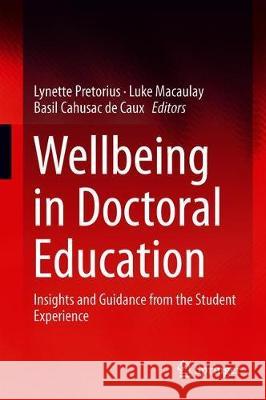Wellbeing in Doctoral Education: Insights and Guidance from the Student Experience » książka
topmenu
Wellbeing in Doctoral Education: Insights and Guidance from the Student Experience
ISBN-13: 9789811393013 / Angielski / Twarda / 2019 / 295 str.
Wellbeing in Doctoral Education: Insights and Guidance from the Student Experience
ISBN-13: 9789811393013 / Angielski / Twarda / 2019 / 295 str.
cena 644,07
(netto: 613,40 VAT: 5%)
Najniższa cena z 30 dni: 616,85
(netto: 613,40 VAT: 5%)
Najniższa cena z 30 dni: 616,85
Termin realizacji zamówienia:
ok. 16-18 dni roboczych.
ok. 16-18 dni roboczych.
Darmowa dostawa!
Kategorie:
Kategorie BISAC:
Wydawca:
Springer
Język:
Angielski
ISBN-13:
9789811393013
Rok wydania:
2019
Wydanie:
2019
Ilość stron:
295
Waga:
0.61 kg
Wymiary:
23.39 x 15.6 x 1.91
Oprawa:
Twarda
Wolumenów:
01
Dodatkowe informacje:
Wydanie ilustrowane











